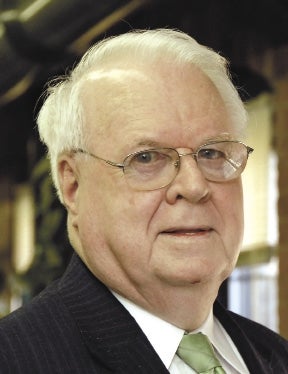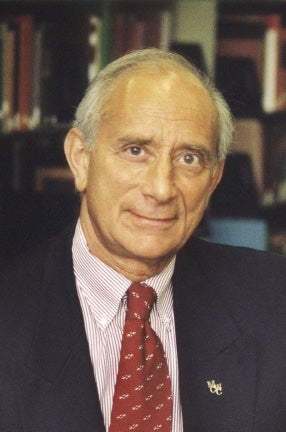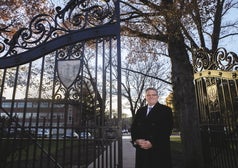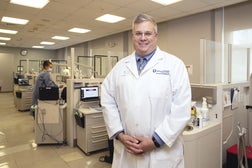A Changed Relationship? Community colleges await direction on new governance plan, potential impact on workforce development
The state's community colleges are preparing for an academic year that could bring major change, thanks to a proposal by Gov. Deval Patrick that passed legislative muster in the fiscal 2013 budget this summer.
With the fall semester just around the corner, there is considerable uncertainty about how the measure, intended to create a more prepared workforce for the Bay State job market, will affect community colleges' approach to education. And some question the plan's merits.
The way community colleges are governed, and how their programs are developed, will differ in a few key ways under Patrick's plan, which raised the ire of several community college officials. Major tenets of the plan include:
• Establishment of a coordinating office at the Massachusetts Department of Higher Education, which will act as a liaison between the 15 community colleges and employers on workforce development and training opportunities;
• Creation of a new funding formula that will include more performance-driven grants and new revenue generated by casino licensing fees;
• Streamlining the process of credit transfers between the colleges, as well as the state university system; and
• Greater state oversight in selection and compensation of top-level college personnel. Patrick will appoint chairmen of the boards of trustees at all colleges, and the Department of Higher Education will play key roles in hiring and determining compensation for college presidents, rather than local search committees
Rosalie Lawless, human resources director at Fairlawn Rehabilitation Hospital in Worcester, represents the private sector in her roles as a trustee at Quinsigamond Community College (QCC) and chairwoman of the Central Massachusetts Workforce Investment Board. She's observed the response to Patrick's plan for community colleges since it was announced in January.
“Is this going to change anything? To be honest with you, I'm not convinced,” Lawless said.
She said changes are aimed at accomplishing something community colleges in Central Massachusetts already have: an effective partnership with the region's workforce that prepares students for open jobs.
That's not to say the system is perfect. Lawless believes there is a skills gap, especially for advanced manufacturing. She strongly supports the performance-based grants, which will reward schools based on yet-to-be-determined metrics.
Like Lawless, community college presidents are being open-minded about the program, though they're clearly ambivalent.
Dr. Gail Carberry, president of QCC, wondered how curriculum might change under the new system. New guidelines for development haven't been announced by the state's Department of Higher Education, and Carberry thinks the existing curriculum is already dialed in to workforce needs.
Carberry said about 90 percent of students find employment in their fields upon graduation, which she considers a good indication the college is meeting workforce needs.
Budgets are another story. Carberry said QCC has a history of being underfunded, and the new system may bring new revenue and relieve the burden of fee increases on students.
“I'm cautiously optimistic that this new program will lead to better funding,” Carberry said.
Daniel Asquino, president of Mount Wachusett Community College (MWCC), was blunt in saying that Patrick's plan for the community colleges was “dropped” on college officials without much explanation, and he's still unsure of the rationale. But he said it's time to move forward.
“It is what it is, the Legislature has spoken, and I'm looking forward to the next phase,” Asquino said.
But Jack Healy, director at the Worcester-based Massachusetts Manufacturing Extension Partnership (MassMEP), said he sees community college reform as a way to improve the system statewide.
“I understand where some of the schools might not like the fact they're losing some of what they perceive to be their autonomy, but I think there's a need to build some cohesion within the system,” Healy said.
The manufacturing field, in particular, needs well-trained workers, according to Healy. In June, MassMEP released a study that showed there were 485 open positions at 47 manufacturing companies in Central Massachusetts. Healy said a lack of qualified applicants has cost these companies $81 million in sales.
The Timeline
College presidents will probably receive direction on how changes will be implemented from the state Department of Higher Education in the next month or two, said state Secretary of Education Paul Reville. Department officials will begin meeting with presidents, and a funding formula is expected to be announced in December.
As far as Reville is concerned, this is a chance for colleges to receive better funding and create a more aligned system. Despite resistance in recent months, he expects community college officials and his staff will work well together as the plan takes effect.
“There are a lot more opportunities to garner resources to help connect more effectively with employers and students for the benefit of the economy overall,” Reville said.
Some goals of the new approach to community college education are already in effect at the schools, including MWCC. For example, the college partners with pharmaceutical company Bristol Myers Squibb's Devens facility to train students for careers there.
That kind of partnership is what the state is looking to encourage more widely across the system, according to Paul Grogan, president of the Boston Foundation, a community group that pushed for the changes Patrick implemented through its Coalition of Community College Reform.
“There are actually a number of very good programs right now that are models for this broader change that this legislation will bring about,” Grogan said.
The problem, according to Grogan, is that the formerly disjointed community college system meant schools have had different curriculum standards, and some are better than others at churning out graduates who are prepared for the Massachusetts workforce. He said the business community sought change because of this, through the coalition.
“The business community is very excited about that, because they see the famous mismatch between job openings and skills,” Grogan said.
Aging Workforce A Factor
Like Lawless, Grogan believes advanced manufacturing is most in need of skilled workers, as the existing workforce is aging. The medical technology field is a close second, he said.
State officials and Boston Foundation employees said the demand for workers was clear in a report of Internet job postings issued in December 2011 from The Conference Board Help Wanted OnLine Data Series. The Conference Board, a research association and business membership, showed there were just fewer than 120,000 open jobs in Massachusetts. At the time, the number of unemployed Massachusetts workers was about twice that number.
Numbers like that mean community colleges, and four-year colleges, must take a good look at the curriculum they're offering students and determine whether they're truly preparing them for employment in today's workforce, according to Grogan.
“I think all of higher education has to be clearer about its mission … and hold themselves accountable,” Grogan said.
Read more
Patrick Signs $32.5B State Budget, Vetoes $32.1M In Spending
Framingham State Opens Marlborough Satellite
Should Central Mass. Have A Law School? Despite Some Appeal, Industry May Not Support One
Asst. Secretary Of Labor Touts Career Training Program
Community Colleges Tailor Training Programs To Better Meet Workforce Needs
















0 Comments